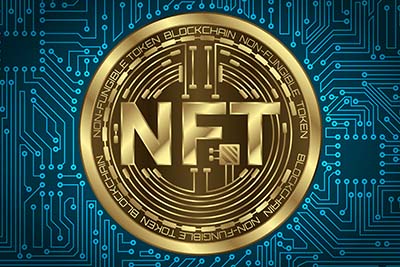
A non-fungible token (NFT) is a type of cryptocurrency that represents unique digital assets. NFTs are not interchangeable like other cryptocurrencies and have individual values based on their characteristics.
The first NFT was created in November 2017 by Ethereum co-founder Vitalik Buterin. The NFT is called ERC721 and is used to represent digital collectibles such as virtual game items and digital artwork. There are many platforms such as nft-profit.app that is helping investors to earn profit from NFTs.
Since then, NFTs have become popular among blockchain developers and investors due to their potential as digital collectibles and investment opportunities. For example, NFTs can be used to create online marketplaces where users can buy, sell, or trade unique digital assets.
How do NFTs work?
NFTs are created and managed using smart contracts. Smart contracts are self-executing agreements that are stored on the blockchain and can be used to automate transactions.
When an NFT is created, its unique attributes (e.g., name, description, images, etc.) are stored in a smart contract. The NFT can then be transferred to other users or sold on online marketplaces.
Benefits of NFTs
Some of the benefits of NFTs include:
– Digital collectibles: NFTs can be used to create digital collectibles such as virtual game items and digital artwork. This allows users to own and trade unique assets online.
– Investment opportunities: NFTs can be used as investment opportunities due to their unique characteristics. For example, NFTs that represent rare digital assets can be worth a lot of money.
– Decentralized markets: NFTs can be used to create decentralized markets where users can buy, sell, and trade unique digital assets. This allows for more peer-to-peer transactions and eliminates the need for third-party intermediaries.
– Security: NFTs are stored on the blockchain and are therefore secure from hacking attacks and fraud.
Drawbacks of NFTs
– Lack of regulation: As NFTs are a relatively new technology, there is no regulatory framework in place to protect investors or users. This could lead to scams and other fraudulent activities.
– Limited use cases: NFTs have yet to be widely adopted and have limited use cases. This could limit their long-term potential.
Despite these drawbacks, NFTs offer a number of benefits that could make them a popular choice for cryptocurrency investors and developers.
NFT – cybercurrency token
The NFT cyber currency is one of the newer tokens in the cryptocurrency market. It was created in late 2017 and has since seen a surge in popularity. NFT is designed to provide a more secure and efficient way of conducting transactions online.
NFT offers a number of advantages over traditional currency. For starters, NFT is decentralized, meaning it is not controlled by any single entity. This makes it more secure and less prone to manipulation. NFT also uses blockchain technology, which allows for the instant settlement of transactions. This makes NFT ideal for online payments and eliminates the need for third-party intermediaries.
Another key feature of NFT is its ability to be used for digital asset ownership. NFT can be used to create and manage digital assets, such as virtual worlds, online games, and social media platforms. This makes NFT a powerful tool for online content creators and provides a new way to monetize their work.
Overall, NFT is a promising new currency that offers many advantages over traditional currencies. It is secure, efficient, and versatile, making it ideal for online transactions. NFT is sure to become a key player in the cryptocurrency market and is worth watching closely.
Conclusion
Non-fungible tokens, or NFTs, are important for a variety of reasons. They can represent unique assets or digital collectibles, and they offer an alternative to the fungible tokens that are used today. NFTs can be used to create new economies and ecosystems, and they have the potential to revolutionize how we interact with digital content.
NFTs are unique because each one is different from the next. This makes them perfect for representing digital collectibles or unique assets. For example, imagine you own a rare painting that you want to sell online. You could create an NFT that represents your painting, and then sell it in an auction or marketplace. This would allow you to track the ownership of the painting, and it would be impossible for someone to fraudulently claim that they own the painting.
NFTs can also be used to create new economies and ecosystems. For example, imagine you own a digital game that allows players to earn NFTs. You could create a marketplace where players can trade NFTs with each other. This would create a new economy for your game, and it would give players a way to monetize their achievements.
Story by John Wick










